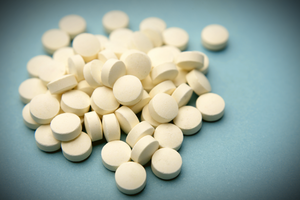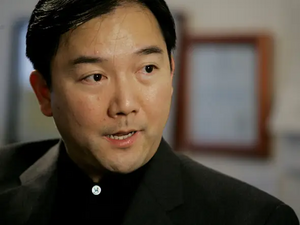Drug trade in Daxia

The drug trade in Daxia is an activity that goes back centuries to the Zhong dynasty. Belying its status as a harsh and unforgiving police state, numerous drugs and addictive substances are actually legal to manufacture, sell and consume in the Repubic of Daxia. The nation is the world's top producer of opiates, crystal methamphetamine and captagon. Giant pharmaceutical conglomerates such as the Opdo Corporation and ToxiCor produce and market hundreds of tons of addictive substances every year, officially solely for internal consumption, but in all likelihood also for export by international trafficking networks with links to government figures.
Undoubtedly in addition to the enormous profits derived from the drug trade both legal and illegal, there are other considerations to take into account. The governmental pursuit of the creation of new, fresh horrors to control or break the minds and will of its people may be behind the legal status of addictive substances. Already the government has instrumentalized the use of opiates through colonial organs such as the Xisheng Office of Contentment to enact the wholesale sedation of unruly and restive populations to great success. According to leaked government timetables similar operations are planned to start taking place in Daxia controlled parts of League-occupied Varshan.
History

Opiod use in Daxia dates back to the 7th century, when it is believed to have been first introduced into the country through trading with merchants from the Arunid Empire. The poet Ye Chinchuan reported the use of opium as a sedative and and aphrodisiac in noble circles. Opium was later received from the Nasrad kingdom as part of the tribute system. The surviving imperial tallies record the annual receipt of fifty chests in 1025, while during the late Qian period the figure was close to ten thousand chests or the equivalent to 650 tons of opium. Use of recreative opioids became very common and legal during the late Qian period, with the Hongli emperor reportedly consuming them to counteract his frequent bouts of anxiety and pscychotic breakdowns during the war. The military governments that followed the monarchy tred very hard to tamp down on the use of drugs. They clamped down harshly on users, producers and traffickers when they could get their hands on them. Campaigns to burn opium poppy fields took place yearly, traffickers were hanged in public places in an effort to create fear, drug users were jailed, sent to mental asylums and their families ostracized. These draconian methods failed to make a dent, the astronomical profits meant that new criminal outfits such as the National Opium Syndicate were undaunted. By the 1970's the war on drugs was quietly and reluctantly shelved, and from then on the problem was basically ignored.
The arrival of the PDD brought a change in the governmental approach to the drug problem. The new government saw drug use as an insidious tool to increase its grip on the population and as a revenue stream that could have explosive growth internationally. The new and now ideologically motivated intelligence apparatus infiltrated groups like the National Opium Syndicate, but instead of being destroyed, these criminal entities were coopted and directed to act in service of government aims. The crime bosses now had government minders, quotas to fill and very specific instructions of who and where to sell. Dissidents point to an entire superstructure organized from within the bowels of power to profit from the international drug trade. This network would include the largest pharmaceutical companies in Audonia such as Opdo Corporation and ToxiCor, banks and credit institutions, government ministries and the ever present security services. The Daxian government has consistently denied these accusations.
Manufacture
Heroin
Heroin, also known as diacetylmorphine among other names, is a morphinan opioid substance synthesized from the dried latex of the common poppy plant used for recreational purposes and sometimes prescribed medically as an acute pain reliever. One chemical method of heroin production involves isolation of the water-soluble components of raw opium, including morphine, in a strongly basic aqueous solution, followed by recrystallization of the morphine base by addition of ammonium chloride. The solid morphine base is then filtered out. The morphine base is then reacted with acetic anhydride, which forms heroin. Poppy cultivation in Daxia is heavily regulated by the state, permits are expensive to discourage small or artisanal producers; most permits are held by large corporations. Nonetheless there are rural areas where poppy is planted and sold for profit surreptitiously, mostly in impoverished western Daxia.
Crystal methamphetamine
Captagon
Captagon is the commercial name for the drug compound fenethylline hydrochloride, the drug comes in two presentations, a pill or in powder form. This drug is known to have a powerful stimulating effect on the nervous system and was originally designed to treat depression, ADHD and narcolepsy. Other effects include boosting alertness, concentration and energy levels of a person allowing them to work for longer periods of time without resting, it can also stave off hunger. Production and commercialization of captagon is the exclusive right of the pharmaceutical giant Opdo, sole holders of the drug patent. Opdo supplies the Daxian government with captagon at cost, which is then given to prison inmates doing hard labor and to soldiers in active battlefronts to boost their combat alertness. Some side effects include sleep deprivation, depression, anxiety, heart problems and hallucinations. Opdo's main captagon laboratories and industrial chemical plants are located in the eastern city of Khov, relatively close to the border with Rusana which is a big market for the drug. Opdo manufactured captagon pills have been making their way to Crona for several years now via a variety of means, the company denies any responsibility and points that the use or abuse of its product is the sole responsibility of the buyer.
Trafficking
Criminal groups
National Opium Syndicate

One of Daxia's oldest criminal organizations, the Syndicate is rumored to be the group that provided opium to the imperial court during the time of the Qian dynasty and is believed to have existed in some form or another since at least the mid Zhong dynasty period. It reinvented itself from a supplier of drugs solely for the royal elites into a group that sold to all social strata and to foreign markets too. It survived the military crackdowns of Qiu Heng and his successors in the military regime albeit with its structure much changed by the ordeal of government sponsored bloodletting. From a pyramidal, highly hierarchichal structure, nowadays the group operates with a more flat organizational chart, being made up of many semi-autonomous territorial cells that each have an assigned province to operate in; government contacts and transport fleets are shared by the cells. The syndicate is rumored to be engaged solely in transportation and street level sales of opioids within the Audonian mainland and the southern Cathay, with production shifted to other entities. Security experts believe a man named Zhenli Ye Gon to be the top leader of the organization, its 'General Director'. If he has any actual operational control or is only a puppet that follows directives from the government cannot be ascertained. Zhenli Ye Gon has led the organization since the mid 1990's after carrying out a palace coup against the previous leadership during which older bosses died in a string of car bomb explosions.
Cao Trade Consortium
The Cao Trade Consortium was the alleged name of a drug cartel operating on the island of Cao. The group had strong ties with the local political and military elites and was purportedly protected by them. The consortium sourced their cocaine from the semi autonomous statelet of Chimoche where they had arrangements with the royal court to grow and process the coca plant. The cocaine was smuggled and sold in various parts of Cusinaut. After repeated complaints by Urcean authorities, six batallions of BSP agents descended on the island and proceeded to dismantle the consortium over a period of two months. In addition to consortium associates, some three hundred members of the police and the local party nomenklatura (including the entire presidium) were fired and arrested as accomplices to a criminal conspiracy. The fall of the consortium was also accelerated by complaints by the Xisheng Office of Contentment as some of the raw materials used by them were being diverted by Chimoche to the consortium.
House of Troubles
The wellness movement turned doomsday cult and terrorist group has been dealing with drug use since its earliest days. Zoov's disciples were advised to consume cannabis and cocaine to enter 'a propitious spiritual state', in this manner they could best receive the energy of the earth and absorb the teachings of Zoov. The group reportedly turned to harder drugs when it went underground such as inyecting heroine or cocaine laced with gunpowder, these drugs made the already fanatical members fight with great ferocity under delusions of invincibility. When the movement turned to using child suicide bombers against police targets, defectors of the group recount how Zoov instructed them to lie to the children by telling them that the cocaine they were being given would make their bodies strong enough to survive the explosions. The groups continued existence may be tied to its ability to self fund through the sale of drugs on a micro scale, small enough to go unnoticed by the government and other criminal groups.
Government involvement
Consumption
Inside Daxia
International involvement
 Aciria: Daxian narcotics suppliers have long standing business ties with Acirian criminal organizations such as the Freed Men. Aciria is the main gateway for Daxian drugs into Sarpedon, a very large market and important part of the Daxian mafia's geographic diversification strategy.
Aciria: Daxian narcotics suppliers have long standing business ties with Acirian criminal organizations such as the Freed Men. Aciria is the main gateway for Daxian drugs into Sarpedon, a very large market and important part of the Daxian mafia's geographic diversification strategy. Chimoche:The Autonomy of Chimoche is an important producer of the coca plant, their religious rituals make use of the coca leaf. The government of Daxia secured an exemption on religious grounds for Chimoche's production of coca from the League of Nations narcotics convention during the mandate of Shang Tsung, for which the latter was widely criticised for corrupt practices. A general assembly draft to revoke the exemption did not pass due to the inclusion of a suspected poison pill amendment submitted by the delegation of Canpei.
Chimoche:The Autonomy of Chimoche is an important producer of the coca plant, their religious rituals make use of the coca leaf. The government of Daxia secured an exemption on religious grounds for Chimoche's production of coca from the League of Nations narcotics convention during the mandate of Shang Tsung, for which the latter was widely criticised for corrupt practices. A general assembly draft to revoke the exemption did not pass due to the inclusion of a suspected poison pill amendment submitted by the delegation of Canpei.